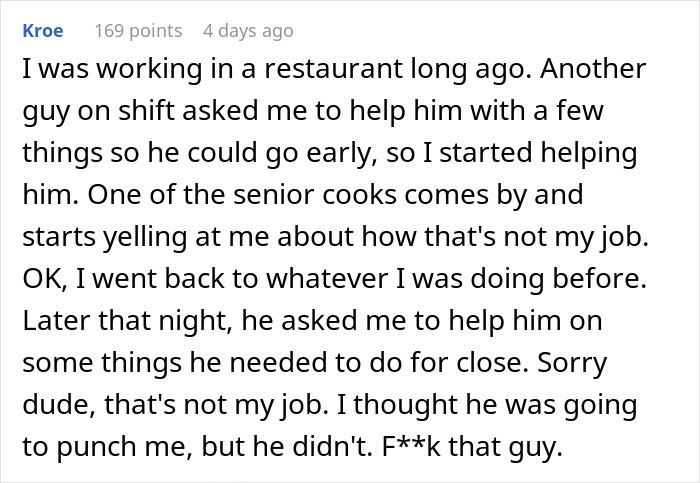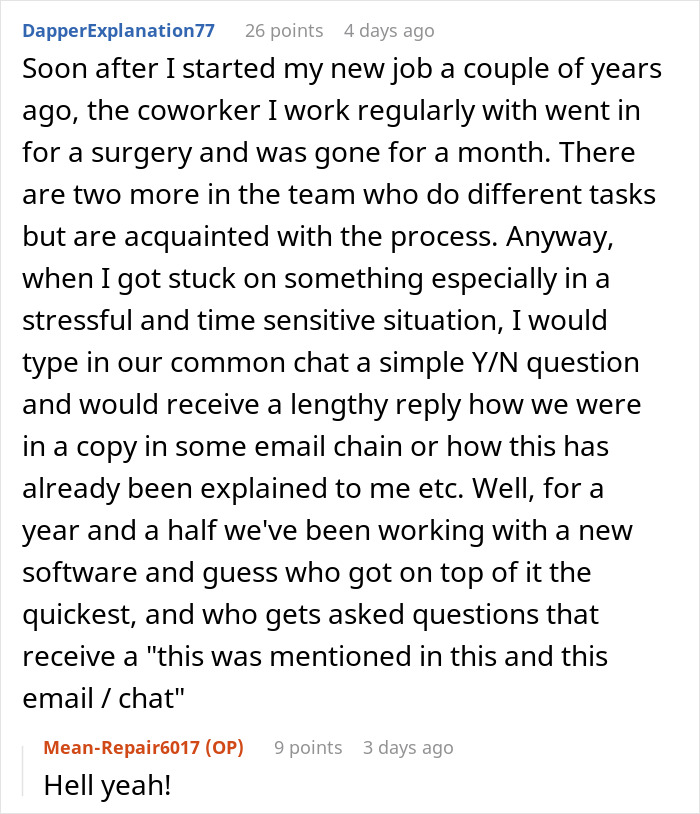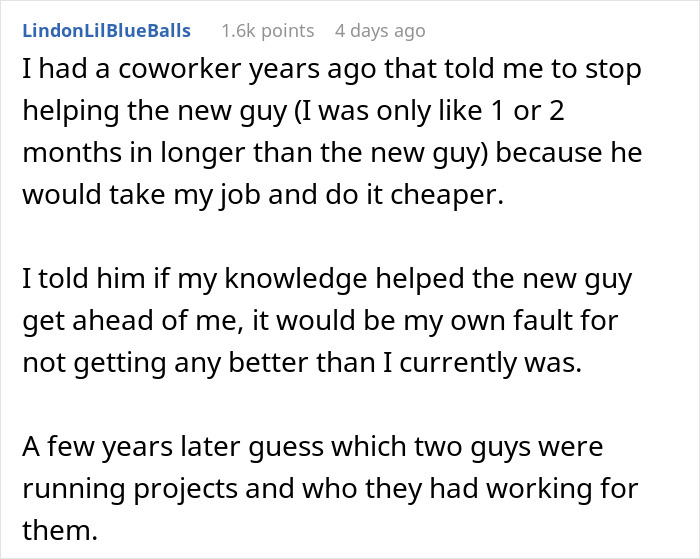Starting a new job is stressful for a lot of reasons, including the fact that you’re often expected to hit the ground running. Normally, there is some time devoted to teaching a job, but realistically, you sort of have to rely on coworkers to help out. Of course, this immediately falls apart if your coworkers have zero interest in lifting a single finger.
A man shared his bit of petty revenge on a coworker who refused to help him years ago as it was “not in her job description.” We reached out to the person who made the post via private message and will update the article when he gets back to us.
Having a more experienced person teach you is a great way to learn a new job

Image credits: Dmitrii Shirnin / unsplash (not the actual photo)
But one man ended up getting a cold shoulder from his coworker
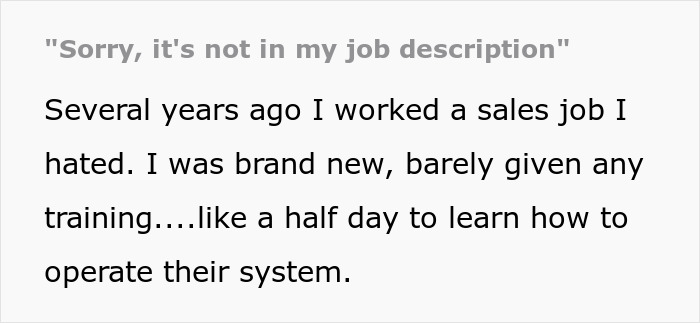
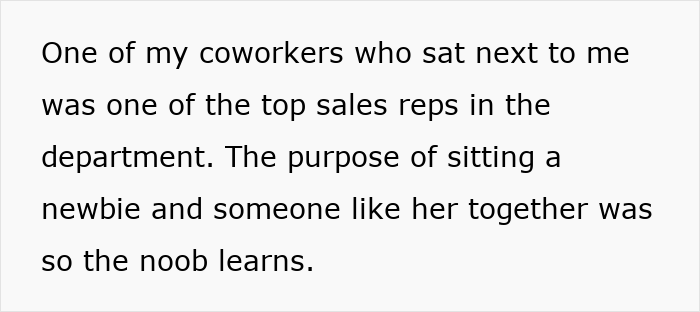
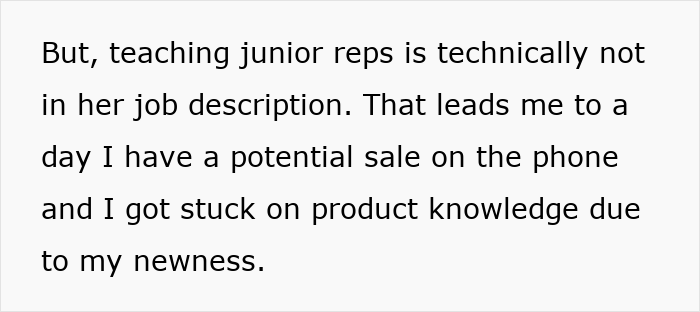

Image credits: Sable Flow / unsplash (not the actual photo)
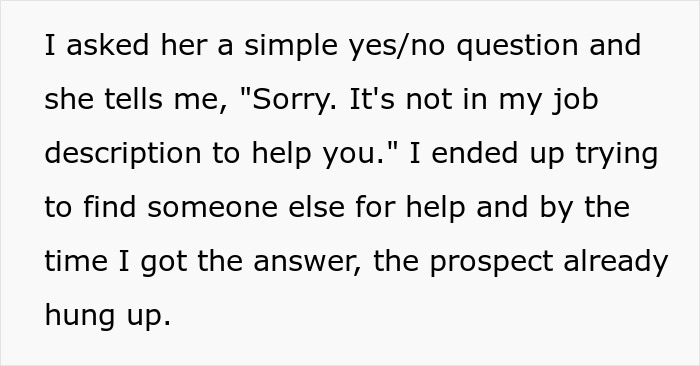
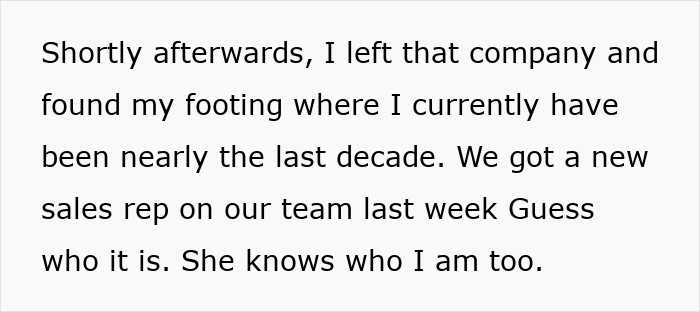


Image credits: Vasilis Caravitis / unsplash (not the actual photo)


Image credits: Mean-Repair6017
Some people take “not my job” super literally

Image credits: Sebastian Herrmann / unsplash (not the actual photo)
When a worker constantly uses “not my job” to refuse responsibility beyond their narrow definition, there is usually more at play than simple laziness. In most work environments, the jobs are so narrowly defined that the employees are rewarded for staying in their lane either by getting no reward for doing their job or for being burdened with endless extra work. Over time, this creates a culture where people cordon off their own lists and view any request that isn’t within their job as a hassling intrusion.
Burnout is another giant factor. When employees are already feeling overwhelmed, a small request can be like the last straw. They’ve learned that no is the only way to protect their own sanity and schedule. Instead of taking a step forward to help a struggling teammate, they hold back, fearful that lending a hand today will deprive them of extra hours tonight and an inadequate “thank you” tomorrow. Such self‑protection can quickly devolve into a default reluctance to contribute to anything outside of a narrowly defined parameter.
Sometimes, it is a matter of unclear expectations. If management has not previously indicated that flexibility and teamwork are factors in performance evaluations, employees rationally assume that only core duties are at issue. Under such circumstances, extra work on a volunteer basis is not appealing. Why risk overextending yourself without reward? When job descriptions are holy writ and not living documents, employees use them as a shield against extra work, even when team success depends on assisting one another.
This can be an organizational issue or just someone being petty

Image credits: Mapbox / unsplash (not the actual photo)
Power issues are at play as well. Lower-level members of staff or contractors may see any non-contracted request as overstepping on the part of coworkers or management. They are afraid that agreeing will invite a flood of requests in the future with no end point. By establishing rigid limits on “what I do” they are trying to protect themselves from future exploitation, but this is a defensive attitude that can wear down trust and work together across the office.
Lack of ownership is also involved. In companies where one’s record is only measured in terms of individual output and not of team work, co-workers care about their own numbers. They don’t think about improving procedures or debugging that won’t count towards their numbers directly. When the reward system doesn’t respect contributions by working as a team, “not my job” is the smart cut for maximizing personal scores.
Others simply get tired of being “team players”. They define it as constant freelancing of effort and time, which breeds resentment. Instead of being asked how they can incorporate the occasional extra work into their duties, they resort to refusal, thinking that any request that’s not part of their assigned job violates some unstated understanding. All-or-nothing thinking ignores the give-and-take of good teamwork, where occasional give-and-take builds goodwill and improves workflow.
It’s good to have balance

Image credits: Toa Heftiba / unsplash (not the actual photo)
Lastly, poor leadership has a tendency to create these situations in the first place. If the managers themselves do not hesitate to dump unwanted tasks on others without explanation or appreciation, then employees take that as permission to do the same. A manager who never appreciates employees for doing extra work or makes an observation about extra effort is telling the team that extra effort is beside the point. In those environments, “not my job” isn’t an attitude, it’s the office’s survival default.
Ultimately, taking “not my job” too far undermines workplace morale, erodes creativity, and stifles problem-solving. It turns a productive team into a war zone of tight job definitions. Putting this cycle to an end requires decisive leadership that rewards flexibility, sets mutually supportive expectations, and recognizes when individuals go beyond their defined roles. Only then do workers feel free, and motivated, to help one another in a pinch rather than resorting to a four-word cop-out.
A few people wanted more details
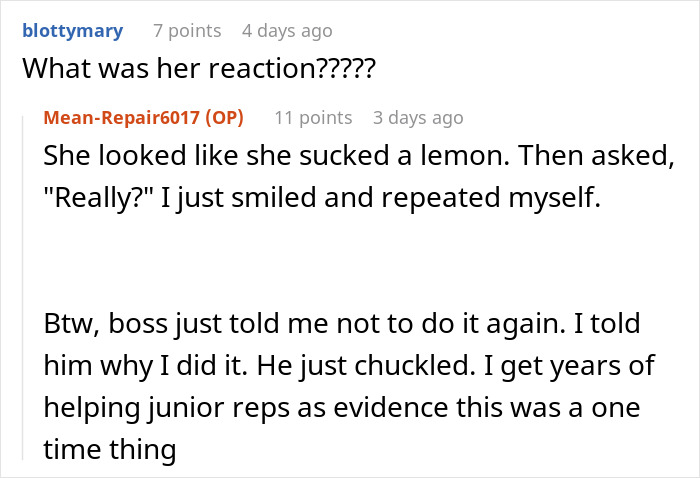
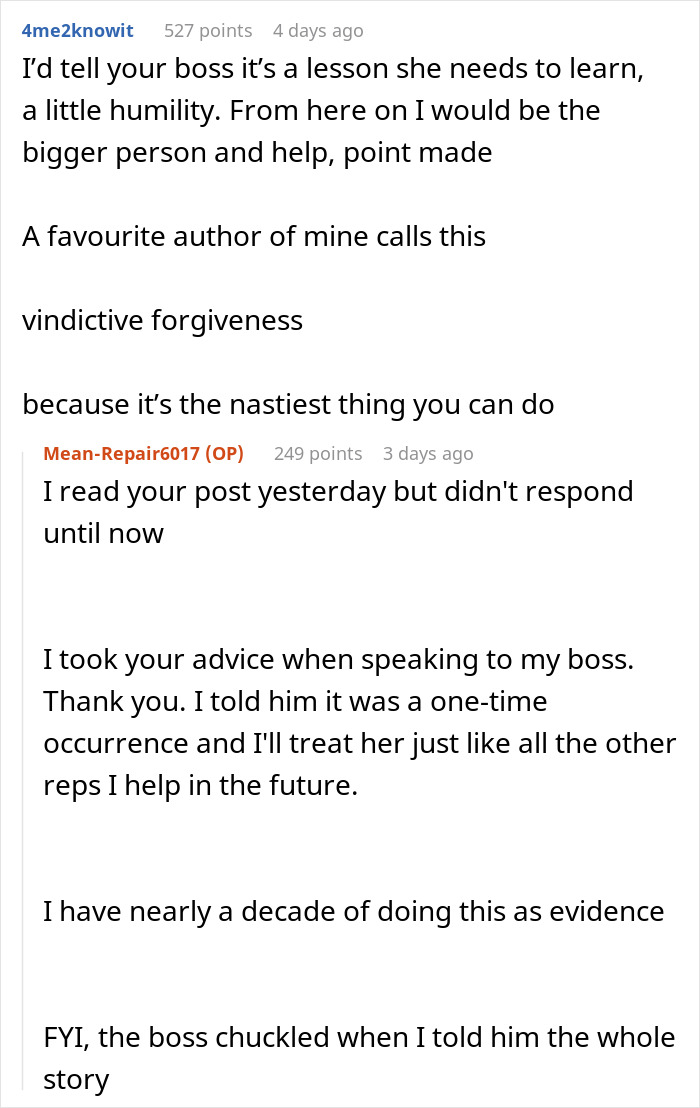
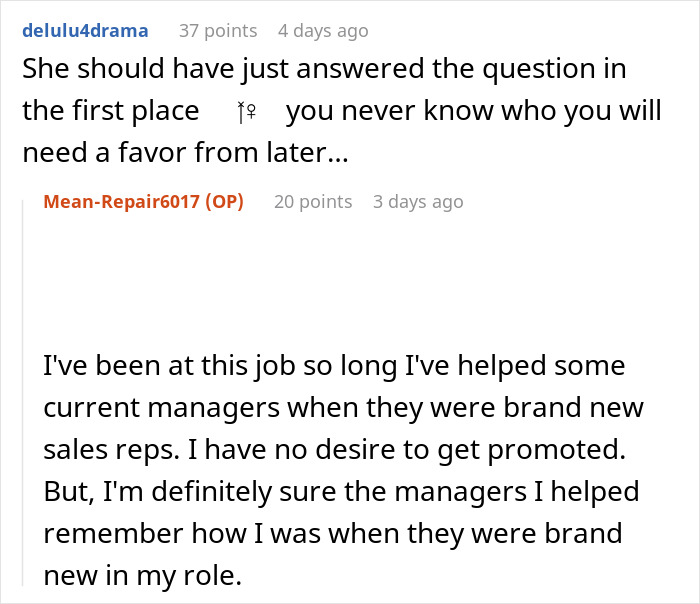
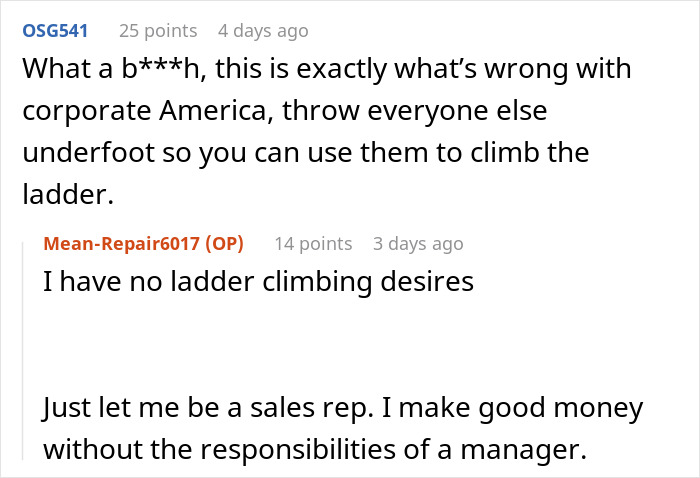
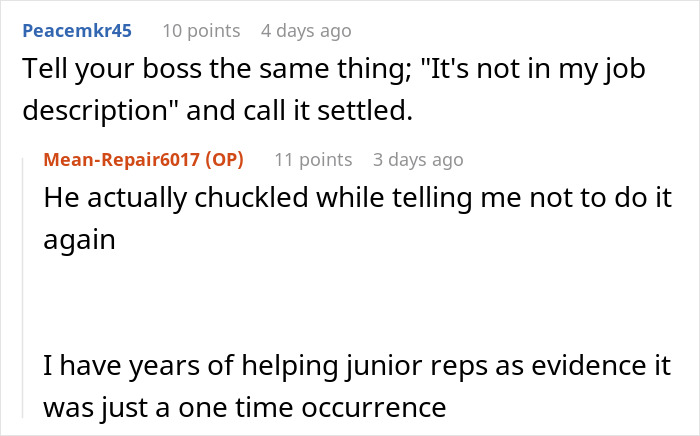

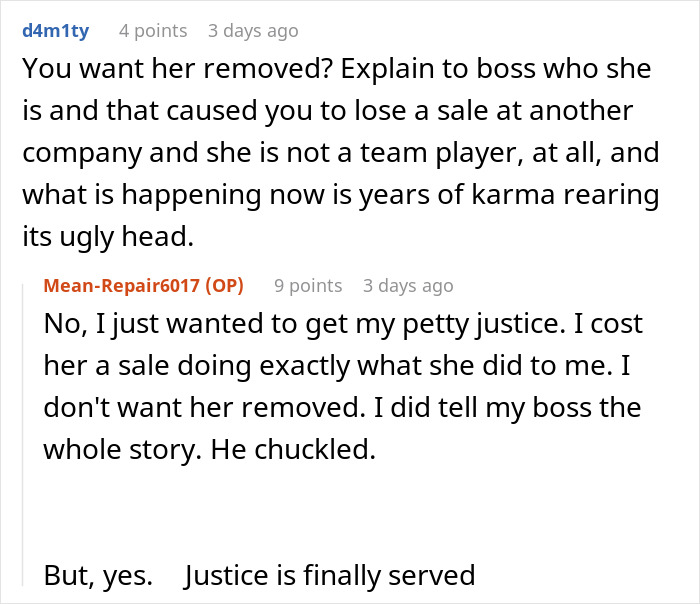

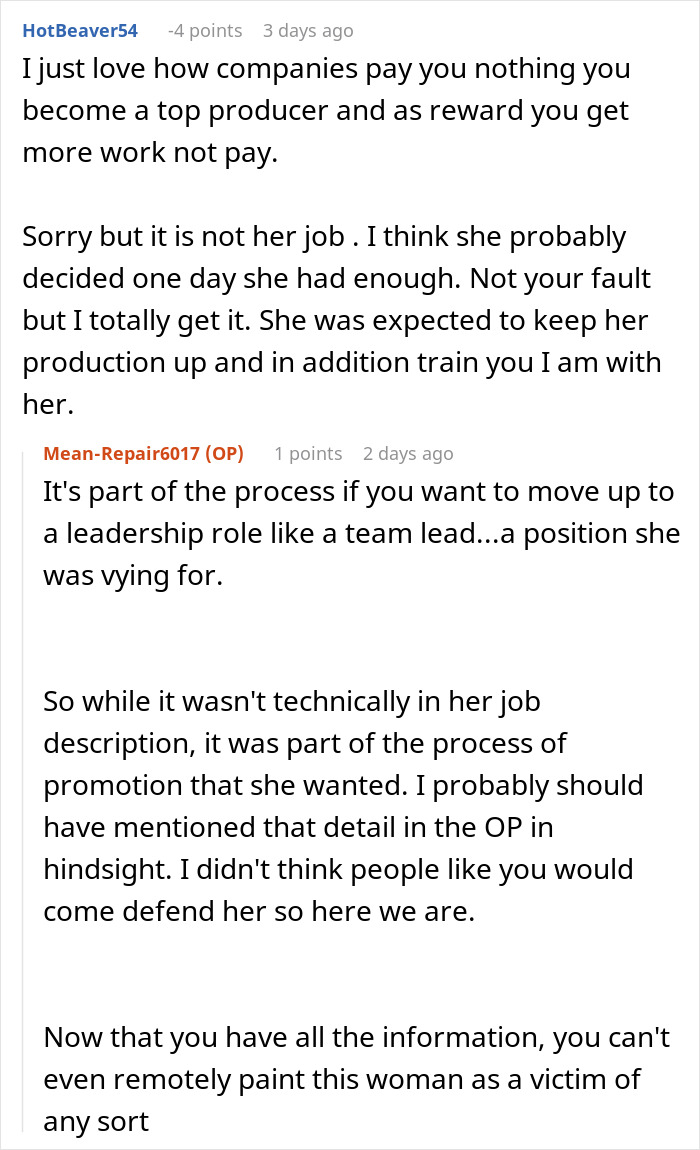
Many readers thought it was the perfect response

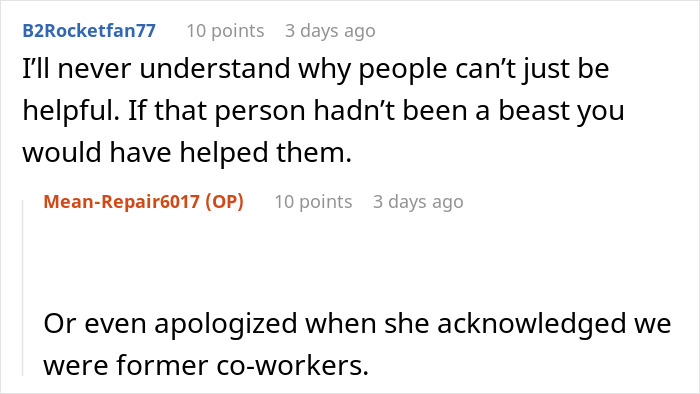

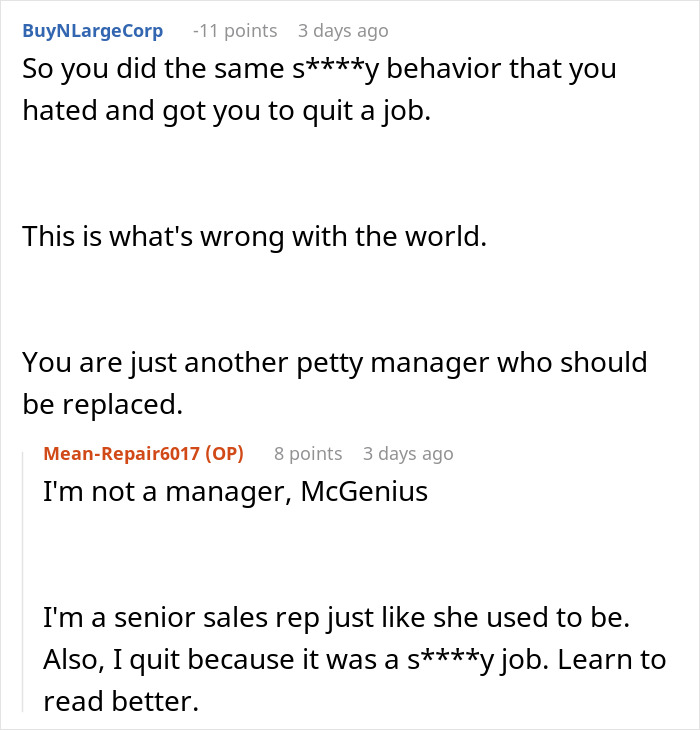
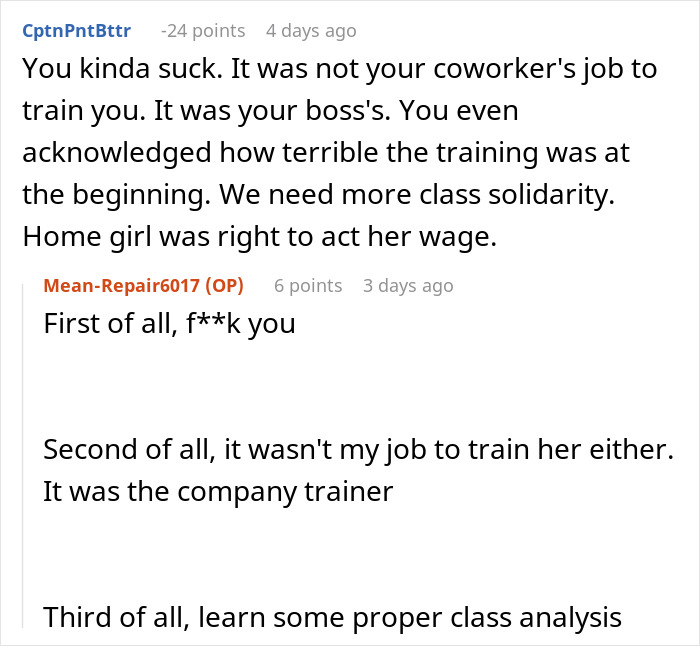




Some shared similar stories
